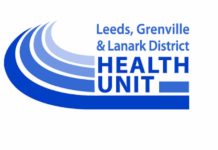submitted by Dana Hawthorne, RD
Leeds, Grenville & Lanark District Health Unit
Myth 2: Our bodies need cleansing.
There are a few fad diets out there that promote the idea that our bodies need cleansing or detoxing. This is based on the belief that “toxins” build up in our body from the food and drinks we consume, so we need to remove these toxins, often through a liquid only diet including smoothies, soups or juices. This cleanse will then bring about various alleged results including weight loss, more energy and/or better skin, just to name a few. However, this notion of cleansing or detoxing is not backed by scientific evidence. In fact, our bodies do a great job of removing toxins on their own. Our digestive system, lungs, skin, kidneys and liver all function to keep us healthy and remove toxins and waste from our bodies. Following a restrictive diet, like a cleanse, also deprives our body of essential nutrients and can leave you feeling hungry and lethargic. Focus on eating a variety of healthy foods including vegetables and fruit, whole grains, beans and legumes, lean meat, lower fat dairy products, and water as your drink of choice.
Myth 3: Everyone needs a multivitamin supplement
We all need minerals and vitamins for our body to function properly. Vitamins and minerals are found in food. Multivitamins are supplements that may contain a single vitamin or mineral, or they may include an array of different vitamins and minerals. Some people need multivitamins for different stages or conditions, for example pregnant women or people with osteoporosis. However, most individuals can meet their nutrient needs through a healthy balanced diet. Food provides us with other important nutrients that supplements do not such as fibre, carbohydrates, protein and essential fats. Food also gives us energy. It’s important to eat a variety of nutrient dense foods including vegetables, fruit, whole grains, legumes, nuts, fish, eggs, meat, milk, cheese, and yogurt, even if you do take a supplement. Also, remember that more isn’t always better when it comes to supplements. Taking large amounts of vitamins and mineral supplements can be dangerous, as certain vitamins and minerals are toxic in high doses. If you think you may benefit from a supplement, talk to a registered dietitian or your health care provider.
For more information visit www.healthunit.org, connect with us on Facebook and Twitter (@LGLHealthUnit) or call 1-800-660-5853.







